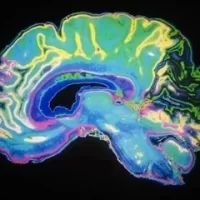Our emotional, psychological, and social well-being are all parts of our mental health. It influences our thoughts, emotions, and behaviors. Also, it influences how we respond to stress, interact with others, and make decisions. Every period of life, from childhood and adolescence to maturity, is vital for mental health.
If you have mental health issues, they may have an impact on your thinking, mood, and behavior over the course of your life. There are numerous elements that affect mental health issues, such as:
biological components, including DNA or the chemistry of the brain
Experiences with trauma or abuse in life
a history of mental illness in the family
Mental health issues are widespread, but assistance is available. Individuals with mental health issues can improve, and many make a full recovery.
Early Warning Signs
Not sure if you or someone you know is living with mental health problems? Experiencing one or more of the following feelings or behaviors can be an early warning sign of a problem:
Eating or sleeping too much or too little
Pulling away from people and usual activities
Having low or no energy
Feeling numb or like nothing matters
Having unexplained aches and pains
Feeling helpless or hopeless
Smoking, drinking, or using drugs more than usual
Feeling unusually confused, forgetful, on edge, angry, upset, worried, or scared
Yelling or fighting with family and friends
Experiencing severe mood swings that cause problems in relationships
Having persistent thoughts and memories you can’t get out of your head
Hearing voices or believing things that are not true
Thinking of harming yourself or others
Inability to perform daily tasks like taking care of your kids or getting to work or school
The benefits of staying well
Research shows that high levels of mental health are associated with increased learning, creativity and productivity, more pro-social behaviour and positive social relationships, and with improved physical health and life expectancy. In contrast, mental health conditions can cause distress, impact on day-to-day functioning and relationships, and are associated with poor physical health and premature death from suicide.
But it’s important to remember that mental health is complex. The fact that someone is not experiencing a mental health condition doesn’t necessarily mean their mental health is flourishing. Likewise, it’s possible to be diagnosed with a mental health condition while feeling well in many aspects of life.
Ultimately, mental health is about being cognitively, emotionally and socially healthy – the way we think, feel and develop relationships – and not merely the absence of a mental health condition.












